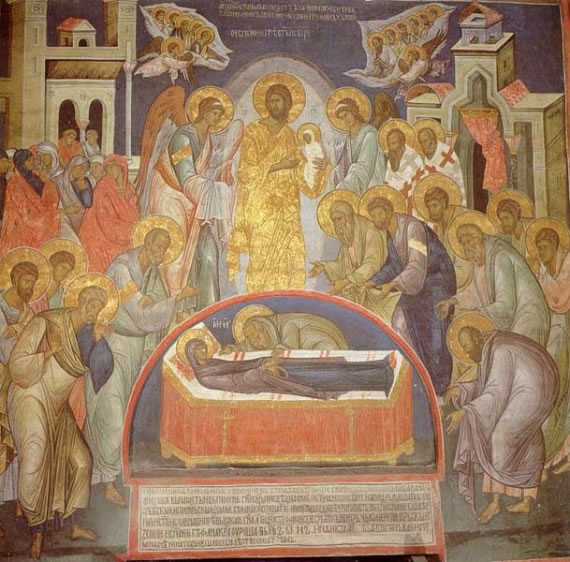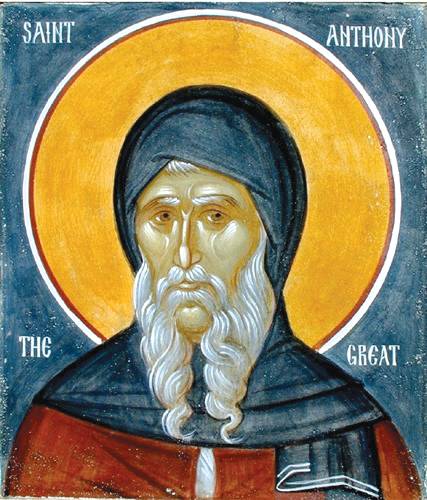No, I did not make that up. My friend on Facebook, Fr. Peter Pappas, posted
this article from cnn.com which talks about how a majority, and a growing one at that, of young Christians today view God as a therapist to help boost their self-esteem. Though I don't think that such a view of God, in of itself, is inherently contradictory with the teachings of the Church, when it is made a viewpoint that is totally divorced from our Lord's call to repentance, then this should make all Christians very worried.
Today, the Orthodox Church commemorates the beheading of St. John the Forerunner. From this reading in the Gospel we are taught many things but one teaching stands out above the others, in my opinion--that we must be prepared to sacrifice for our Lord and God and Saviour. Our Lord Jesus Christ said that the servants are not greater than the master. Our Lord says that the world hated Him and it will also hate you. He said that the world persecuted Him and it will persecute you. Christ didn't seem to think it more important that your self-esteem was protected.
Like John the Forerunner, our Lord's ministry to the world began with the same word--REPENT! Where is repentance in the world of the moralistic therapeutic deist? It's not there because your sins (assuming that you believe that anything you do
can be considered sinful) are taken away by God, the great giver of self-esteem. I've yet to see that title applied to God in any theological book I've read thus far. But, as we know from St. Paul, we should not sin more so that grace may abound more. "God forbid," he says! Forgiveness of our sins is without doubt freely offered by our Lord, but without repentance, it is like the seed that falls on the path and is eaten up by the birds.
So what's causing this? The article says it is a common trait among more liberal Protestants and Catholics while Evangelicals and Mormons do a great deal more about instilling passion of the faith. The blame lies with both parents and pastors. And there is merit to that. Most liberal Protestant Churches have said that sin no longer exists or that the only great sins are not defending and adhering to leftist political dogma such as endorsement of gay marriage, abortion on demand, radical environmentalism, etc.. Without sin, there is no need for repentance, so what is left except for Christ to be transformed into the
Buddy Christ that the Catholics were trying to sell in the movie,
Dogma. In these same denominations, the "liturgy" is more a free-form of entertainment, meant to instill in the "worshipers" that God is your friend and chum. People are happy, but are they joyful? There is a difference between the two and that is a post for another time. (In the meantime, I will direct you to my friend's blog at
Kyrie Eleison for her excellent insight)
But I believe that instilling passion in youth should not be the guiding criterion for averting viewing God as a new age psychotherapist. You can instill in youth the passion to see God that way! Yes, Evangelical youth are excited about the faith, but I've seen their church services, I've seen them in action. Tell me what the passage of Scripture means and they are at a loss. They know that abortion is wrong, but tell me why God became Man and they'll assume that such is Catholic nonsense. They're passionate about God, no question, but they only know God in a one dimensional manner and such is not a far cry from those who see God as your new best friend to give you a shoulder.
Parents are the problem. They are the problem because parents today generally don't want to parent their kids. They give their kids every luxury item they can, they let them do whatever they wish, even to the point of breaking the law. Their rationale is that as long as they're doing such things in a safe place, it's OK. We are a nation of siblings; hierarchy has gone the way of the dodo. Are there exceptions? Of course. But the exception proves the rule. Why go to a church which preaches a God the opposite of them?
Pastors are also the problem. They have become more like business CEOs than ordained servants of God. They tailor the message to draw in the maximum number of people thinking that as long as more people hear some of the Gospel, the better. Whatever happened to preaching the totality of the Gospel, even if only for the very few? Our Lord even said that many will be called, few will be chosen.
Kids aren't stupid. I've taught high school aged kids for awhile and they're more articulate and thoughtful than what most people give them credit for. They can be articulate and thoughtful, but instead adults pander to them. Parents and pastors want their kids in church but think that they have to dress it up in fake platitudes of what is "cool" and "hip" and "relevant." Kids can spot a fake fifty miles away. They're good at it. What is the result? These kids fall away from Christianity or adopt a warped view of God.
The Evangelical
modus operandi of importing Rock n' Roll into church, which has infiltrated even more conservative, liturgical churches, has not worked. It has only contributed to this phenomenon. If kids are taught that God is someone to be there when they need them to comfort them, then why should they thank Him, why should they pray, why should they even sacrifice? If such a viewpoint were practiced 2000 years ago, St. John the Forerunner would have restrained his tongue and left to live, St. Matthew would have stayed in his tax booth, the apostles would never condemn sin and prefer to live and let live, the saints would never endure martyrdom for confessing Christ and great hymns of the church would never have been written because it's all about "me and Jesus." When the Gospel preached includes nothing of repentance, then God's greatest gift to mankind of the incarnation of His Son is the biggest
non sequitur of all time. If that were preached from the pulpits, and I don't believe you have to only be Orthodox to believe in the incarnation, perhaps our youth stand a greater chance of staying in the churches, leading decent moral lives in a context that gives glory to Christ our Saviour.





